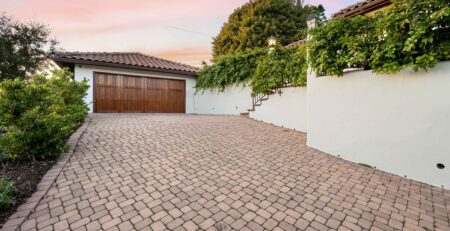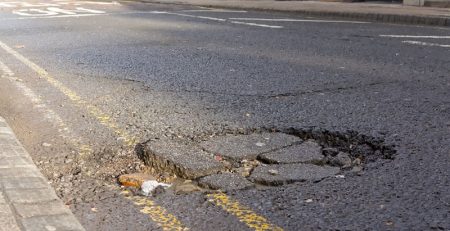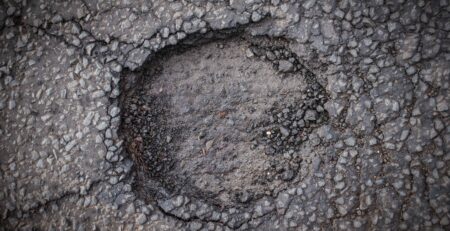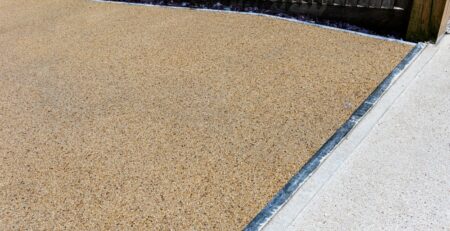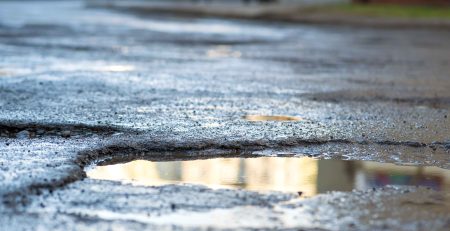Reinventing the Road: New Trends in Surfacing
The road surfacing industry in the UK is experiencing a remarkable transformation. Once focused purely on strength and longevity, today’s projects combine technology, design, and environmental awareness to create surfaces that are smarter, more efficient, and better suited to modern demands. Whether it’s a quiet residential street, a busy car park, or a private driveway, the way we approach surfacing is being reinvented — one project at a time.
In this article, we explore the most significant road surfacing trends shaping the future of the UK’s roads and outdoor spaces, from cutting-edge materials and machinery to sustainable drainage and digital monitoring.
1. Smart Machinery and the Rise of Machine-Lay Precision
Perhaps the biggest shift in the last decade has been the introduction of advanced surfacing machinery. Traditional hand-lay methods, while still valuable for small or intricate areas, are gradually being replaced by machine-lay tarmac systems.
These machines can lay asphalt or tarmac in uniform layers with millimetre precision, dramatically improving both finish and efficiency. Modern pavers are often laser-guided to maintain perfect level and thickness, reducing unevenness and human error.
This isn’t just about speed — it’s about consistency and quality. For large-scale projects such as car parks, access roads, and commercial estates, machine-lay surfacing provides a smoother finish that lasts longer and requires less maintenance.
At Total Surfacing Solutions, this approach forms the foundation of professional surfacing work. Each project benefits from cutting-edge machinery, operated by skilled technicians who understand that precision is key to durability and visual appeal.
2. Advanced Materials Built for UK Conditions
Materials science is another area seeing huge innovation. Modern engineers no longer rely solely on conventional asphalt mixes. Instead, they are experimenting with polymer-modified bitumen, recycled aggregates, and resin-bound systems designed to handle the UK’s unpredictable weather.
Polymer modification improves elasticity and resistance to cracking, especially during freeze-thaw cycles — a common issue in colder regions. Meanwhile, warm-mix asphalt is gaining popularity for its energy efficiency, as it can be laid at lower temperatures, reducing fuel use and carbon emissions without sacrificing strength.
For driveways and decorative applications, resin-bound surfacing continues to rise in demand due to its flexibility, durability, and smooth finish. It offers a sleek, modern aesthetic while still being porous enough to manage surface water effectively.
These material improvements don’t just extend lifespan — they reduce long-term costs by minimizing repairs, resurfacing, and downtime. For homeowners and commercial developers alike, that means better value and less disruption.
3. Sustainable Drainage and Permeable Surfaces
Another major trend reshaping the industry is the emphasis on sustainable urban drainage systems (SuDS). With heavier and more frequent rainfall across the UK, effective drainage has become critical to both property protection and infrastructure resilience.
Permeable surfaces, such as porous asphalt and resin-bound surfacing, allow water to drain naturally through the surface and into the ground below. This prevents puddles, reduces runoff, and helps prevent flooding — a major concern in urban developments.
Beyond functionality, these systems are part of a broader commitment to sustainability. By allowing natural filtration, they help maintain groundwater levels and reduce pollution entering local waterways.
Forward-thinking surfacing contractors, including Total Surfacing Solutions, are adopting these practices as standard, ensuring every project not only performs well but also supports the environment in the long term.
4. Aesthetic Design and Decorative Surfacing
Gone are the days when roads and driveways were simply black or grey slabs. The modern approach to surfacing includes design, texture, and colour as core elements. Property developers, architects, and homeowners are increasingly requesting surfaces that complement the overall style of their surroundings.
Coloured tarmac and resin finishes can be used to define spaces, add visual contrast, or blend seamlessly into landscaping. From rustic gravel effects to contemporary stone-like finishes, the design potential is endless.
Decorative surfacing is especially popular in public spaces, school playgrounds, and commercial complexes, where visual appeal matters as much as durability. It’s also a growing trend in high-end residential driveways, where the right finish can significantly enhance curb appeal and property value.
This blend of practical strength and aesthetic value is one of the hallmarks of modern surfacing design — showing that performance and beauty can go hand in hand.
5. Data, Technology, and Smart Roads
Technology doesn’t stop at machinery. In fact, digital tools are now being integrated into the roads themselves. Engineers are exploring ways to embed sensors into road surfaces that can monitor temperature, moisture, and stress levels in real time.
This data helps predict wear and tear, allowing maintenance teams to address issues before they become major problems — a concept known as predictive maintenance. In larger urban projects, this can save councils and developers millions in repair costs over time.
While still emerging, these innovations represent a glimpse into the future of intelligent infrastructure, where roads effectively communicate their condition and help plan their own upkeep.
6. Sustainability Through Recycling and Efficiency
Another major trend is the recycling of asphalt and construction waste. With landfill costs rising and environmental standards tightening, many surfacing companies are now reusing reclaimed asphalt pavement (RAP) as part of new road mixes.
This not only reduces waste but also saves on raw material and transportation costs. When paired with energy-efficient production processes and reduced-temperature asphalt, these methods drastically cut the carbon footprint of each project.
For clients, it’s an assurance that their projects are being completed with both performance and responsibility in mind — a balance that’s becoming essential in today’s construction environment.
7. The Human Factor: Skilled Craftsmanship Still Matters
Despite all the new technology and materials, human expertise remains at the heart of every great surfacing project. No amount of machinery can replace the knowledge of a skilled surfacing team who understands the unique challenges of each site — from ground preparation and base strength to finish quality and traffic load.
That’s why companies like Total Surfacing Solutions continue to invest in training, safety, and team development. Advanced tools are only as effective as the people using them, and craftsmanship will always play a central role in delivering quality results.
Conclusion
The UK road surfacing industry is undergoing a period of reinvention — one driven by innovation, environmental awareness, and higher client expectations. The future belongs to companies that combine technology with expertise, offering not just hard-wearing surfaces but smart, beautiful, and sustainable solutions.
From machine-lay precision and climate-ready materials to aesthetic design and smart monitoring, these emerging road surfacing trends are setting new benchmarks for performance and quality.
If you’re planning a driveway, car park, or commercial surfacing project, now is the time to embrace these innovations. To see how modern surfacing is redefining standards across the UK, visit Total Surfacing Solutions — the trusted experts in delivering durable, efficient, and future-ready surfaces.


